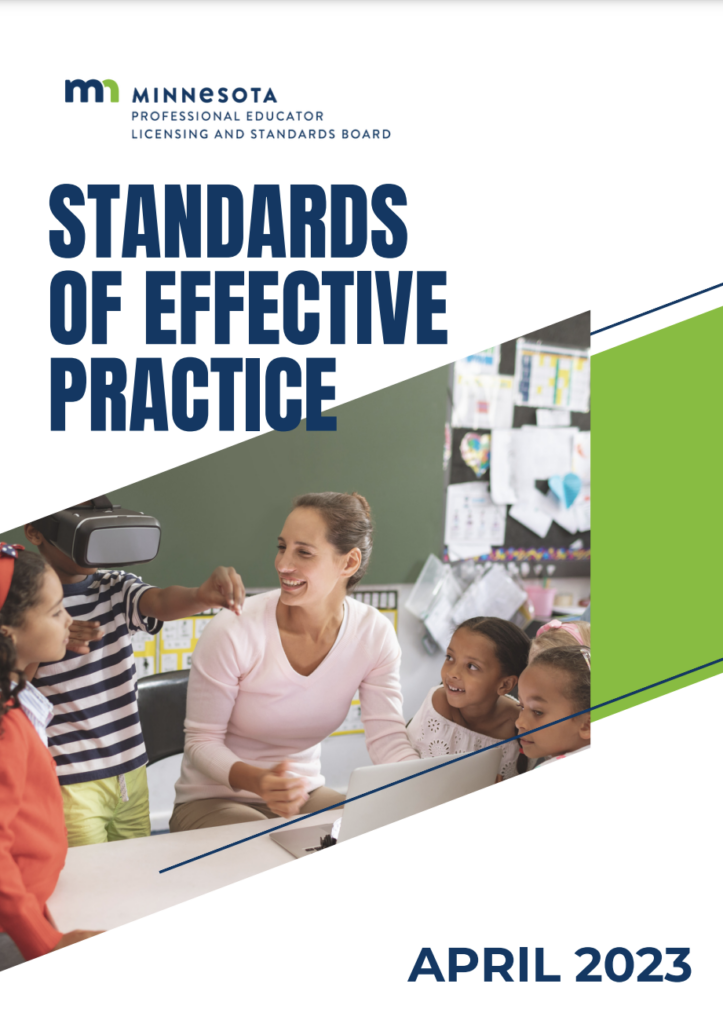Want to be a licensed teacher in Minnesota? Prepare to embody political ideology
Minnesota teachers looking to be licensed through the state — regardless of where they will teach — must meet new Standards of Effective Practice that require educators to embody political ideology.
The licensure rule changes, made by Gov. Tim Walz’s Professional Educator Licensing and Standards Board (PELSB), were adopted in 2023 despite overwhelming public opposition and impact teacher candidates completing an initial teacher licensure program in Minnesota and all teachers seeking an initial Tier 3 license via the licensure via portfolio process. American Experiment first drew attention to these changes in May 2022.
PELSB states that the Standards of Effective Practice “are the essential knowledge and skills a teacher needs in order to be effective from ‘Day 1’ in the classroom.” A new standard called Racial Consciousness and Reflection reflects “the foundational knowledge and skills all teachers must embody in order to effectively teach all of Minnesota’s students,” according to PELSB, and is necessary because “a teacher must have a foundational understanding of how race and racism are embedded in our institutions and everyday life.”
Examples of what educators will be required to demonstrate in their licensure coursework and then expected to implement in their classrooms include:
- Standard 2, D. “The teacher fosters an environment that ensures student identities” including gender, gender identity, and sexual orientation are “affirmed and incorporated into a learning environment.”
- Standard 4, H. “The teacher demonstrates the ability to create opportunities for students to learn about power, privilege, intersectionality, and systemic oppression in the context of various communities and empowers learners to be agents of social change to promote equity.”
- Standard 6, C. “The teacher understands the historical foundations of education in Minnesota, including laws, policies, and practices, that have and continue to create inequitable opportunities, experiences, and outcomes for learners…”
- Standard 6, F. “The teacher assesses how their biases, perceptions, and academic training may affect their teaching practice and perpetuate oppressive systems and utilizes tools to mitigate their own behavior to disrupt oppressive systems.”
- Standard 8, C. “The teacher understands how ethnocentrism, eurocentrism, deficit-based teaching, and white supremacy undermine pedagogical equity.”
- Standard 8, D. “The teacher understands that knowledge creation, ways of knowing, and teaching are social and cultural practices shaped by race and ethnicity, often resulting in racially disparate advantages and disadvantages.”
Not only do these new changes politicize teacher training requirements, they include many words with varied definitions — such as “power,” “privilege,” “oppressive systems,” “anti-racist,” “implicit bias,” “educational equity” — without sufficient corresponding definitions.
There are also many instances where the standards use verbs that are not measurable — such as “understands.” Vague and ambiguous words or phrases make assessing learning outcomes challenging, and they risk introducing subjectivity into deciding whether or not a teacher has adequately and completely demonstrated the required content in his or her teacher preparation program.
________________
Are you an aspiring educator or teacher preparation provider concerned these rule changes violate your personal, religious beliefs and convictions? Please reach out to our coalition for support using the contact information found here.
